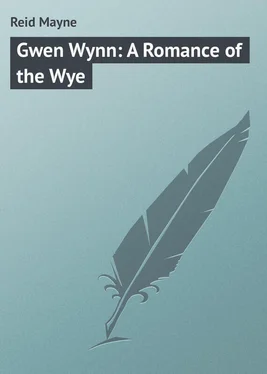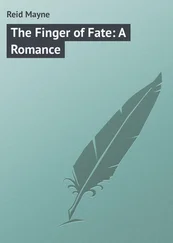Mayne Reid - Gwen Wynn - A Romance of the Wye
Здесь есть возможность читать онлайн «Mayne Reid - Gwen Wynn - A Romance of the Wye» — ознакомительный отрывок электронной книги совершенно бесплатно, а после прочтения отрывка купить полную версию. В некоторых случаях можно слушать аудио, скачать через торрент в формате fb2 и присутствует краткое содержание. Жанр: foreign_prose, foreign_children, на английском языке. Описание произведения, (предисловие) а так же отзывы посетителей доступны на портале библиотеки ЛибКат.
- Название:Gwen Wynn: A Romance of the Wye
- Автор:
- Жанр:
- Год:неизвестен
- ISBN:нет данных
- Рейтинг книги:3 / 5. Голосов: 1
-
Избранное:Добавить в избранное
- Отзывы:
-
Ваша оценка:
- 60
- 1
- 2
- 3
- 4
- 5
Gwen Wynn: A Romance of the Wye: краткое содержание, описание и аннотация
Предлагаем к чтению аннотацию, описание, краткое содержание или предисловие (зависит от того, что написал сам автор книги «Gwen Wynn: A Romance of the Wye»). Если вы не нашли необходимую информацию о книге — напишите в комментариях, мы постараемся отыскать её.
Gwen Wynn: A Romance of the Wye — читать онлайн ознакомительный отрывок
Ниже представлен текст книги, разбитый по страницам. Система сохранения места последней прочитанной страницы, позволяет с удобством читать онлайн бесплатно книгу «Gwen Wynn: A Romance of the Wye», без необходимости каждый раз заново искать на чём Вы остановились. Поставьте закладку, и сможете в любой момент перейти на страницу, на которой закончили чтение.
Интервал:
Закладка:
Reid Mayne
Gwen Wynn: A Romance of the Wye
PROLOGUE
Hail to thee, Wye – famed river of Siluria! Well deserving fame, worthy of warmest salutation! From thy fountain-head on Plinlimmon's far slope, where thou leapest forth, gay as a girl on her skip-rope, through the rugged rocks of Brecon and Radnor, that like rude men would detain thee, snatching but a kiss for their pains – on, as woman grown, with statelier step, amid the wooded hills of Herefordshire, which treat thee with more courtly consideration – still on, and once more rudely assailed by the bold ramparts of Monmouth – through all thou makest way – in despite all, preserving thy purity! If defiled before espousing the ocean, the fault is not thine, but Sabrina's – sister born of thy birth, she too cradled on Plinlimmon's breast, but since childhood's days separated from thee, and straying through other shrines – perchance leading a less reputable life. No blame to thee, beautiful Vaga – from source to Severn pure as the spring that begets thee – fair to the eye, and full of interest to reflect on. Scarce a reach of thy channel, or curve of thy course, but is redolent of romance, and rich in the lore of history. On thy shores, through the long centuries, has been enacted many a scene of gayest pleasure and sternest strife; many an exciting episode, in which love and hate, avarice and ambition – in short, every human passion has had play. Overjoyed were the Roman Legionaries to behold their silver eagles reflected from thy pellucid wave; though they did not succeed in planting them on thy western shore till after many a tough struggle with the gallant, but ill-starred, Caractacus. Long, too, had the Saxons to battle before they could make good their footing on the Silurian side – as witness the Dyke of Offa. Later, the Normans obtained it only through treachery, by the murder of the princely Llewellyn; and, later still, did the bold Glendower make thy banks the scene of patriotic strife; while, last of all, sawest thou conflict in still nobler cause – as of more glorious remembrance – when the earnest soldiers of the Parliament encountered the so-called Cavaliers, and purged thy shores of the ribald rout, making them pure as thy waters.
But, sweet Wye! not all the scenes thou hast witnessed have been of war. Love, too, has stamped thee with many a tender souvenir, many a tale of warm, wild passion. Was it not upon thy banks that the handsome "Harry of Monmouth," hero of Agincourt, first saw the light; there living, till manhood-grown, when he appeared "armed cap-à-pie , with beaver on"? And did not thy limpid waters bathe the feet of Fair Rosamond, in childhood's days, when she herself was pure? In thee, also, was mirrored the comely form of Owen Tudor, which caught the eye of a queen – the stately Catherine – giving to England a race of kings; and by thy side the beauteous Saxon, Ædgitha, bestowed her heart and hand on a Cymric prince.
Nor are such episodes all of the remote past, but passing now; now, as ever, pathetic – as ever impassioned. For still upon thy banks, Vaga, are men brave, and women fair, as when Adelgisa excited the jealousy of the Druid priestess, or the maid of Clifford Castle captured a king's heart, to become the victim of a queen's vengeance.
Not any fairer than the heroine of my tale; and she was born there, there brought up, and there —
Ah! that is the story to be told.
CHAPTER I
THE HEROINE
A tourist descending the Wye by boat from the town of Hereford to the ruined Abbey of Tintern, may observe on its banks a small pagoda-like structure; its roof, with a portion of the supporting columns, o'er-topping a spray of evergreens. It is simply a summer-house, of the kiosk or pavilion pattern, standing in the ornamental grounds of a gentleman's residence. Though placed conspicuously on an elevated point, the boat traveller obtains view of it only from a reach of the river above. When opposite he loses sight of it; a spinny of tall poplars drawing curtain-like between him and the higher bank. These stand on an oblong island, which extends several hundred yards down the stream, formed by an old channel, now forsaken. With all its wanderings the Wye is not suddenly capricious; still, in the lapse of long ages it has here and there changed its course, forming aits , or eyots , of which this is one.
The tourist will not likely take the abandoned channel. He is bound and booked for Tintern – possibly Chepstow – and will not be delayed by lesser "lions." Besides, his hired boatmen would not deviate from their terms of charter, without adding an extra to their fare.
Were he free, and disposed for exploration, entering this unused water-way he would find it tortuous, with scarce any current, save in times of flood; on one side the eyot, a low marshy flat, thickly overgrown with trees; on the other a continuous cliff, rising forty feet sheer, its façade grim and grey, with flakes of reddish hue, where the frost has detached pieces from the rock – the old red sandstone of Herefordshire. Near its entrance he would catch a glimpse of the kiosk on its crest; and, proceeding onward, will observe the tops of laurels and other exotic evergreens, mingling their glabrous foliage with that of the indigenous holly, ivy, and ferns; these last trailing over the cliff's brow, and wreathing it with fillets of verdure, as if to conceal its frowning corrugations.
About midway down the old river's bed he will arrive opposite a little embayment in the high bank, partly natural, but in part quarried out of the cliff – as evinced by a flight of steps, leading up at back, chiselled out of the rock in situ .
The cove thus contrived is just large enough to give room to a row-boat, and if not out upon the river, one will be in it, riding upon its painter; this attached to a ring in the red sandstone. It is a light, two-oared affair – a pleasure-boat, ornamentally painted, with cushioned thwarts, and tiller ropes of coloured cord athwart its stern, which the tourist will have turned towards him, in gold lettering, "The Gwendoline."
Charmed by this idyllic picture, he may forsake his own craft, and ascend to the top of the stair. If so, he will have before his eyes a lawn of park-like expanse, mottled with clumps of coppice, here and there a grand old tree – oak, elm, or chestnut – standing solitary; at the upper end a shrubbery of glistening evergreens, with gravelled walks, fronting a handsome house; or, in the parlance of the estate agent, a noble mansion. That is Llangorren Court, and there dwells the owner of the pleasure-boat, as also prospective owner of the house, with some two thousand acres of land lying adjacent.
The boat bears her baptismal name, the surname being Wynn, while people, in a familiar way, speak of her as "Gwen Wynn"; this on account of her being a lady of proclivities and habits that make her somewhat of a celebrity in the neighbourhood. She not only goes boating, but hunts, drives a pair of spirited horses, presides over the church choir, plays its organ, looks after the poor of the parish – nearly all of it her own, or soon to be – and has a bright smile, with a pleasant word, for everybody.
If she be outside, upon the lawn, the tourist, supposing him a gentleman, will withdraw; for across the grounds of Llangorren Court there is no "right of way," and the presence of a stranger upon them would be deemed an intrusion. Nevertheless, he would go back down the boat-stair reluctantly, and with a sigh of regret, that good manners do not permit his making the acquaintance of Gwen Wynn without further loss of time, or any ceremony of introduction.
But my readers are not thus debarred; and to them I introduce her, as she saunters over this same lawn, on a lovely April morn.
Читать дальшеИнтервал:
Закладка:
Похожие книги на «Gwen Wynn: A Romance of the Wye»
Представляем Вашему вниманию похожие книги на «Gwen Wynn: A Romance of the Wye» списком для выбора. Мы отобрали схожую по названию и смыслу литературу в надежде предоставить читателям больше вариантов отыскать новые, интересные, ещё непрочитанные произведения.
Обсуждение, отзывы о книге «Gwen Wynn: A Romance of the Wye» и просто собственные мнения читателей. Оставьте ваши комментарии, напишите, что Вы думаете о произведении, его смысле или главных героях. Укажите что конкретно понравилось, а что нет, и почему Вы так считаете.












